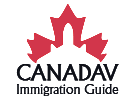A signed undertaking is required from all sponsors to provide the sponsored person with the basic requirements that sponsored people may need starting from the day they enter Canada until the end of the commitment period. An undertaking is a contract between the sponsor and CIC that the sponsor will compensate the government for any social assistance payments made to the sponsored person. Guarantors or sponsors remain bound by the agreement throughout the entire term of the contract, even in the event of a change of circumstances such as a breakdown of marriage, separation, divorce, or financial change in circumstances.
In the case of a spouse, common-law partner, or marital partner, the sponsor is required to sign an undertaking to compensate the federal or provincial governments from the date they became permanent residents for a period of 3 years.
In the case of a child under the age of 19, a sponsor or spouse, a common-law partner, or a marital partner, the obligation begins on the day the child becomes a permanent resident of Canada for 10 years or until the child reaches the age of 25, whichever is earlier.
In the case of a dependent child over the age of 19, the sponsor or the spouse, the common-law partner, or the marital partner, the obligation starts on the day the dependent child becomes a permanent resident, for a period of 3 years.
In the case of parents and grandparents, the sponsorship obligation extends for 20 years from the date the family member becomes a permanent resident. For all other family members, the commitment lasts for 10 years.
In 2011, the Supreme Court of Canada decided that while a sponsor’s obligation to compensate the state for benefits from which his relatives benefit may be delayed in some circumstances, they cannot be fully pardoned.


